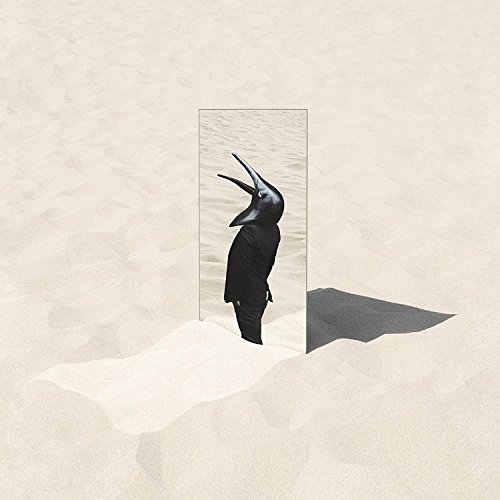
Penguin Cafe
The Imperfect Sea
Release Date: May 5, 2017
Genre(s): Pop/Rock, Classical Crossover, Chamber Music
Record label: Erased Tapes Records
Music Critic Score
How the Music Critic Score works
Buy The Imperfect Sea from Amazon
Album Review: The Imperfect Sea by Penguin Cafe
Great, Based on 7 Critics
Based on rating 4.5
With their second album, the new incarnation of Penguin Cafe look to assert their musical identity. The transition from father to son, removing the word 'Orchestra' from the band's name in the process, is a rather lovely equivalent to the handing down of the family business, and on this evidence the musical legacy of the late Simon Jeffes, has left its mark on his son, Arthur. He’s finding an ever-clearer voice in his own compositions, though, and the ensemble's move to Erased Tapes looks set to bring that out fully over the coming years.
Based on rating 4/5
Arthur Jeffes' decision to resurrect the name and sound of his late father's iconic instrumental project looked an unlikely proposition when he started Penguin Café in 2009. The original Penguin Café Orchestra's blend of exuberant folk and minimalist classical music proved hugely popular during the 1980s and into the 1990s before the tragic early death of Simon Jeffes in 1997 brought the project to the close. Restarting the band eight years ago as a continuation and homage to his father's legacy proved a live success but quite how the new group would emerge from such a sizeable shadow remained unclear until 2010's A Matter of Life...
Based on rating 8/10
When Arthur Jeffes founded Penguin Cafe in 2009, it was intended as both a continuation and tribute to his late father Simon Jeffes' own avant pop band Penguin Cafe Orchestra. Inevitably, Penguin Cafe's two previous long-players were judged by the work of his father before him, and the impossible benchmark Simon Jeffes set with much-loved tracks like "Perpetuum Mobile," "Music for a Found Harmonium," and "Telephone and Rubber Band." To his and his fellow Penguin Cafe cohorts' credit, The Imperfect Sea sees that ambition most fully realized. The opening track, "Ricercar," is a bold statement of lapping rhythms, rolling piano lines, and spiraling strings.
Based on rating 7.5/10
Borrowing from the repetitive minimalism of Philip Glass and the ambient stylings of Brian Eno, Penguin Cafe's Arthur Jeffes carries on the tradition that began with his father's Penguin Cafe Orchestra back in 1976. Melding classical and electronic touchstones into enchanting instrumental pieces evidently runs in the family. Jeffes' minimalist compositions start with delicate tones that are electronically looped, shaped, and formed into a bed of subtly shifting textures to which melodic accents are added.
Based on rating 7/10
Back in the 1970s, Simon Jeffes formed Penguin Café Orchestra. Blending classical, folk and innovative sound manipulation into gentle repetitions, they inadvertently created several Balearic classics in the process, influencing so much we hear in modern music (including the post-classical Erased Tapes label). His son Arthur is still continuing the musical mission, so it's a perfect fit for him to end up on ET.
Based on rating 6.4/10
Laid up in the south of France after ingesting some bad shellfish back in 1972, British guitarist and composer Simon Jeffes experienced fever dreams of a world "of ordered desolation… a place which had no heart. " In the days after, Jeffes dreamt of its cure, wherein "the quality of randomness, spontaneity, surprise, unexpectedness and irrationality in our lives is a very precious thing. " Jeffes also had a surreal poem pop into his head about being proprietor of the Penguin Cafe--and by 1976, he had established the Penguin Cafe Orchestra bearing such properties.
Based on rating 6/10
Penguin Café is a legacy band. Such a thing is not normal, but the namesake band, Penguin Café Orchestra, was not normal. They were left-of-center. They started as compatriots of Brian Eno's weird world, and branched off from there, releasing five studio albums from 1976 to 1993. Their music is ….
'The Imperfect Sea'
is available now

